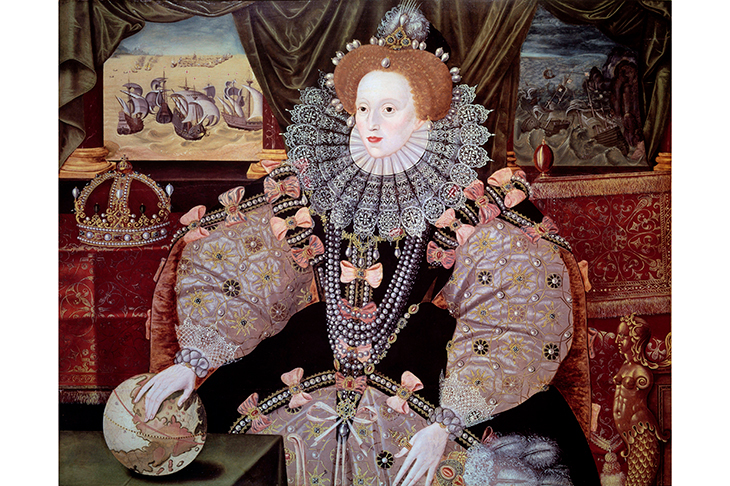As a contemporary John Clapham reported, Queen Elizabeth I ‘had pleasure in reading the best and wisest histories’, and translated the Roman historian Tacitus as a ‘private exercise’. This has been confirmed by a manuscript of a translation of Tacitus corrected by her, recently discovered in Lambeth Palace. But what on earth was she doing that for?
It was nothing as juvenile as showing that she was the equal of any man in the education stakes. The point is that, up till the 16th century, Tacitus had enjoyed little reputation. This was because renaissance ‘humanism’, forged in city-state republics such as Florence and Venice, had found its origins in the noble liberty and self-government of republican Rome. Cicero was their hero. But by 1500, these city states had almost all been replaced by monarchies and princely courts, and men like Machiavelli had started to preach a different gospel: that trickery and deception were legitimate means to political ends.
Hence a growing continental interest in Tacitus, the opening of whose Annales described the transition from the republic to one-man (tyrannical?) rule: ‘At first kings governed Rome (753 bc). Lucius Brutus established the consulate and political liberty (the republic, 509 bc)… Cinna and Sulla ruled briefly as despots (87-81 bc); Pompey and Crassus’s coalition passed to Caesar (49 bc)’; and after Caesar’s death (44 bc) and another civil war, Caesar’s heir ‘emerged as the emperor Augustus under the title of “first citizen”.’ He then ‘absorbed the functions of the senate, the officers of state and the laws. There was no opposition’. The republic was dead. And after Augustus came Tacitus’s accounts of Tiberius, Caligula, Claudius, Nero…
Here, then, was (is) a masterclass in the arcana imperii, the secrets of one-man rule and how to survive under it; and it was Elizabeth who introduced that continental interest in Tacitus into England. Perhaps it was the psychology of sole power and its moral ambivalence, expressed by Tacitus with pointed, precise and savage epigrammatic brilliance (‘all conversations with despots end with “Thank you”’), that gripped her imagination, as it did others’. We could certainly do with a Tacitus now.
Got something to add? Join the discussion and comment below.
Get 10 issues for just $10
Subscribe to The Spectator Australia today for the next 10 magazine issues, plus full online access, for just $10.
You might disagree with half of it, but you’ll enjoy reading all of it. Try your first month for free, then just $2 a week for the remainder of your first year.














Comments
Don't miss out
Join the conversation with other Spectator Australia readers. Subscribe to leave a comment.
SUBSCRIBEAlready a subscriber? Log in